Register One Person Company (OPC)
Get started with your solo business through OPC Registration in India and enjoy a host of benefits like limited liability, less compliances, better management and a good corporate goodwill.
One Person Company Registration – OPC Registration Procedure in India
Table of Contents
The Companies Act, 2013 introduced the new concept of One Person Company (OPC). As the name suggests, an OPC is a company established by a single person. A single individual establishes and manages the company. An OPC has all the features of a company, such as perpetual succession, limited liability and a separate legal entity.
Before the enforcement of the Companies Act, 2013, a single person could not establish a company. If an individual wanted to establish his business, he/she could opt only for a sole proprietorship as there had to be a minimum of two directors and two members to establish a company.
The process of company registration in India is simple and includes fewer steps. Apply for DSC and DIN, then send the name of the company for approval, collect all the documents, and file the form on the MCA website if the authority found the application and documents correct, then it provides you a status of One Person Company.
Types of One Person Company (OPC)
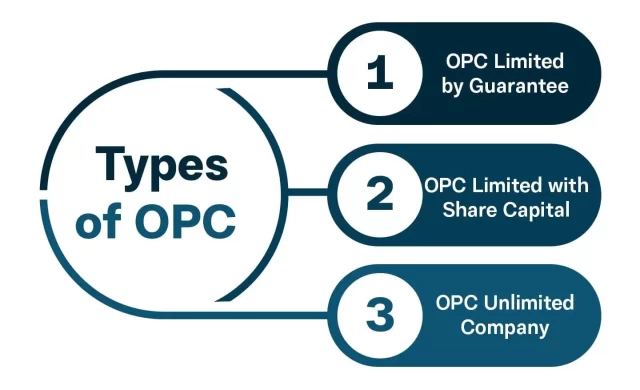
As per the companies act 2013, there are five types of OPCs you can form:
OPC Limited by Shares
OPC Limited by Guarantee with Share Capital
OPC Limited by Guarantee without Share Capital
Unlimited OPC with Share Capital
Unlimited OPC without Share Capital
Benefits of a One Person Company Registration
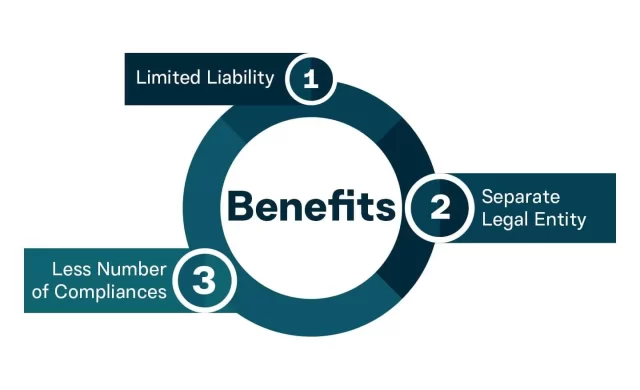
After the online registration of One Person Company in India, there are the following benefits that can be enjoyed:-
Separate Legal Entity
An OPC Company has a separate legal entity from its members. The separate legal entity provides protection to a single individual who is incorporated in the business. The liability of the members is limited to their shares and they are not personally liable for any loss of the company. So, the creditors can sue the OPC and not the member or a director. As the business entity is a company, the entrepreneurs have their assets protected from the failings of the company.
Less Number of Compliances
For One Person Company, the number of compliances is less. They do not have to prepare the cash flow statement and there is no need for a company secretary to sign the books of accounts and annual returns to be signed. This should be signed only by the director.
Easy Incorporation
Incorporating an OPC is easier as compared to other company formations. Because there is only one nominee or member is required for the incorporation. This member can be a director also. The minimum authorised capital required is Rs. 1 lakh but there is no cap on the minimum paid-up capital required.
Easy to Manage Affairs
As the OPC is made by a single person, all its affairs are easy to manage. So, it is easy to make decisions, and the process becomes quick. Every ordinary and special resolution can be passed easily by just one sign of a sole member. Because of this no conflict and delay happened in company activities.
Perpetual Succession
Even if there is one member in the company, the OPC has a feature of perpetual succession. A single person should be appointed as a nominee while incorporating a company. In case of a member’s death, the nominee will run the company in the place of the member.
Eligibility Criteria for OPC Registration in India
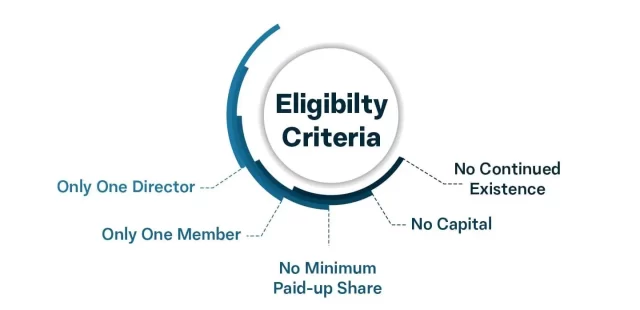
Before you can register OPC (One-Person Company), there are some requirements that you need to fulfill. Following are the OPC registration requirements that you need to know:
- A natural person who must be an Indian citizen, resident of India can become a nominee.
- A minor cannot form an OPC in India, according to the laws, children are incapable to form a company.
- The person must be in India for at least 182 days during the preceding fiscal year.
- An OPC company should not have more than one member. The one can be a nominee and he/she can take over in case the member is incapable of doing company activities or he died.
Compliances of One Person Company
- The company must comply with annual compliance to avoid penalties and late fees.
- If the company does not follow the compliances then it can lead to legal consequences, investigations, and negative implications.
- An OPC company must be aware of all the compliances.
- Following compliances will provide transparency and accountability to shareholders and investors.
- Proper and accurate financial reporting is needed to provide proper information to stakeholders.
- Complying with all the compliances help to protect the company’s reputation.
- Being updated with the applicable regulations will ensure smooth functioning.
- Compliances are important to maintain credibility, and upholding the interest of clients and members
Documents required for One Person Co. Registration in India
The following are the documents required for One Person Company (OPC) Registration:
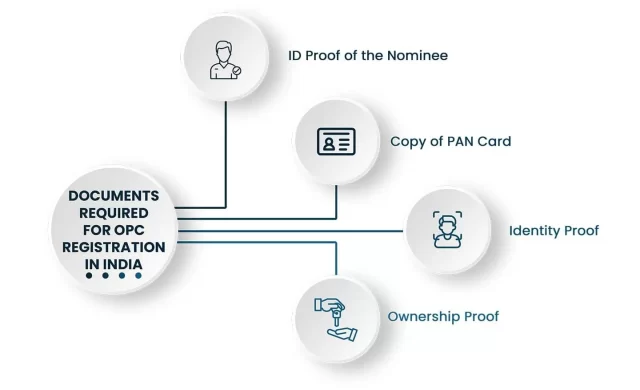
Following are the documents required for One Person Company (OPC) Registration:-
For Directors/Nominee
- ID proof of the nominee
- Copy of PAN Card
- Identity Proof like,
- Voter Card
- Passport
- Driving License
- Address Proof like,
- Bank Statement
- Mobile bill
- Telephone bill
- Electricity Bill
- Passport Size Photo
For Registered Office
- Ownership Proof like,
- Electricity Bill
- Gas Bill
- Electricity Bill
- Mobile Bill
- NoC
Other documents required to submit by a company are as follows:
- The Memorandum of Association (MoA) are the objects to be followed by a company.
- The Article of Association (AoA) has the laws on which the companies will operate.
- Proof of registered office with the proof of ownership and a NOC from the owner.
- Declaration and Consent of the Director in Form INC-9 and DIR-2.
- Declaration by a professional that all the compliances are followed by the company.
Process to Register a One Person Company
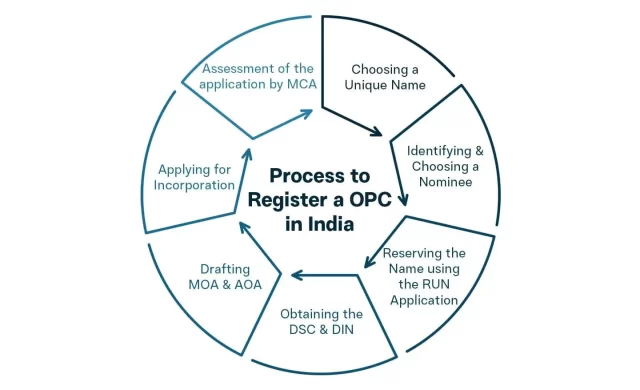
Following is the procedure for incorporating a One-Person Company in India:
- Apply for the Digital Signature Certificate (DSC) of the director. The documents required for this are Address proof, Aadhar Card, PAN card, photo, Email ID, and Phone number.
- Apply for the Director Identification Number (DIN) of the director in the SPICe+ Form along with the name and address proof. The Form DIR-3 can be applied for up to three directors.
- The name must be incorporated in Form SPICe+ 32 application. If the name got rejected then the next name will be applied by filling another SPICe+ 32 Form.
- Prepare all the documents stated above to proceed further in the registration process.
- Along the document must be attached with the SPICe+ Form, SPIC2-MOA, and SPICe-AOA along with the DIN and DSC number. All of these documents should be uploaded on the MCA site.
- After incorporating, PAN and TAN numbers will be generated automatically. There is no need to file a separate application to obtain these numbers.
- Once the verification will be done, the Registrar of Companies will issue a Certificate of Incorporation. After this, you can commence your business.
DisyTax Assistance in registering a One Person Company in India
At DisyTax, we provide end-to-end solutions for the registration of a One Person Company. Our services include:
Company name research
Obtaining DSC and DIN
MOA and AOA drafting
Application filing
Following up with the Ministry of Corporate Affairs
We are a team of leading business experts in India. Through our OPC incorporation process, your online OPC company registration in any state of India can be started on time, and the dream of your solo company can be realized.
Frequently Asked Question (FAQ)
Q1. How does one register for a One Person Company incorporation in India?
Following is the procedure for incorporation of a One Person Company in India
- Choose a unique name
- Choose a nominee for the One Person Company formation
- Reserve the name using the RUN application
- Obtain the DSC and DIN of the director
- Draft MOA and AOA
- Submit the online application
- Assessment of the application by MCA
Q2. Which Act introduced the concept of One Person Company (OPC)?
The concept of One Person Company was introduced by the Companies Act, 2013. Under the Act, OPC is recognized as a legal entity in India.
Q3. How many OPCs can be owned by an individual?
An individual can only own one OPC at a time.
Q4. Who is eligible to act as an OPC member?
Only a natural person who is an Indian citizen and resident in India is eligible to act as an OPC’s member and nominee.
Q5. How can I inform the Registrar of Companies (ROC) about change in an OPC’s membership?
In case of cessation of member of OPC on account of death, incapacity to contract or change in ownership, the company shall file form INC-4. In the same form, the details of the new member of the OPC need to be provided.
Q6.How do I convert an OPC to a Private limited company?
An OPC can be converted voluntarily into a private limited company by passing a special resolution after increasing the minimum number of members and directors to two. No Objection Certificate (NOC) in written form from the creditors must be obtained for the conversion of OPC to a private limited company. Click here to know more about the conversion of an OPC to a private limited company.
